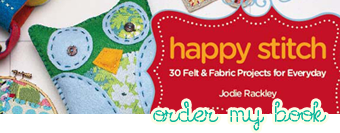LAST week designer Ben de Lisi called on young people to recycle their clothes in an effort to highlight social and environmental issues surrounding the fashion industry.
But it’s not just under 25s who need to take note – whatever our age we can all do something to cut the social and environmental cost of fashion and still stay stylish.
We all know someone who has found a fashion gem buried away in their grandmother’s cupboard, the local charity store or even on the tables of a jumble sale.
And these days there’s even more ways to do recycled chic – fashionistas can scour the rails at vintage shops, buy on eBay, or hold clothes swap parties.
You don’t even need to go out of the house – we probably all have an unworn item in perfect nick hidden away in our wardrobe just waiting to be customised.
If you enjoy hunting high street stores for the perfect outfit you can have just as much fun roaming the growing number of charity and vintage stores heaving with wonderful cast-offs.
And in recycled wear you’ll never make the ultimate faux pas of turning up in the same outfit as someone else or resemble a high street clone.
Gone are the days of dowdy second hand rags. Visit charity shops in locations like Cowbridge, Cardiff or Penarth and you’re likely to find designer labels alongside high street and supermarket wear.
If that doesn’t appeal you can consider Fashion Favours, a collection created by volunteers using only recycled and customised clothing, which Ben de Lisi is backing.
Prime Minister Gordon Brown was among the first to donate items from his wardrobe to the Fashion Favours project, giving up a shirt and tie, while his wife Sarah donated a dress.
An estimated 900,000 items of clothing are thrown out every year by UK households.
The campaign aims to raise awareness about recycling this clothing and help people learn skills to save and make the most of their fashions.
Donated items will then be auctioned at vinspired.com to raise money for HIV charity Body and Soul.
“It’s shocking how many clothes we throw away each year,” De Lisi commented.
“The Fashion Favours collection represents the difference doing a small favour can make in collectively benefiting society.
“I’m excited to be working with young volunteers to pass on my skills so they can help reverse some of the bad fast fashion habits we’ve all adopted.”
We’re sure that it’s not just politicians and young people who want to take advantage of all that recycling can offer their wardrobes.
With alarming reports about how some clothing is made in sweatshops and how the fashion industry contributes to global environmental damage the need to dress ethically but well is pressing.
Donating unwanted clothes to second hand shops or popping them in recycling bags means less unwanted fabric going to our over-flowing landfill sites.
It’s estimated that textiles make up about three per cent of our household waste – or one million tonnes thrown out every year.
Many textiles don’t decompose well and chemicals in them also pollute the environment.
Buying from a charity shops mean your money goes to a good cause too, adding to the feel good factor of getting your hands on new items.
Some women are even hosting clothes-swap parties to pass on their unwanted goodies to friends and colleagues.
Stylist Joy Watson of Inside Out fashion in Cardiff predicts that recycling clothing is the way forward.
“If you wear vintage and recycled clothing you will always look unique and stylish,” she said.
“You will never become a fashion victim or look exactly like everyone else who has shopped on the high street.
“Recycling clothing is definitely the way forward for ethical, environmental and financial reasons.
“With the current financial situation and the credit crunch people are adapting and swapping clothes.
“It is possible to be fashionable by wearing recycled clothes, but even more possible to be unique and stylish.
“If you buy something from last season you can make it more fashionable by adding items from the catwalk like bits of tartan, colourful tights or patent shoes.”
Fashion students in Wales are now being asked to think about environmental and ethical issues when designing clothes.
Jamie Owen, fashion lecturer at Coleg Sir Gar in Carmarthenshire, is asking her students to do projects minimising pollution and sweatshop labour.
“We are trying to make students aware of the economical and environmental message by recycling and using vintage clothing,” Jamie said.
“We ask them to look at the ethical issues too, that’s come in this term. It’s something we’ve always done to an extent but it’s really full on this term.”
Jamie herself buys on eBay and is currently researching clothes-swapping parties to boost her own wardrobe.
“Environmental and ethical issues and the credit crunch all mean we are going back to the time of make do and mend,” she said.
“Obviously you have to make more of an effort to be fashionable this way but it is achievable.
“You just have to be clever and embellish clothes where you can and where you need to.”
So, if granny’s wardrobe doesn’t hold some gems, get down to your local charity shop before all the good stuff goes.

































No comments:
Post a Comment